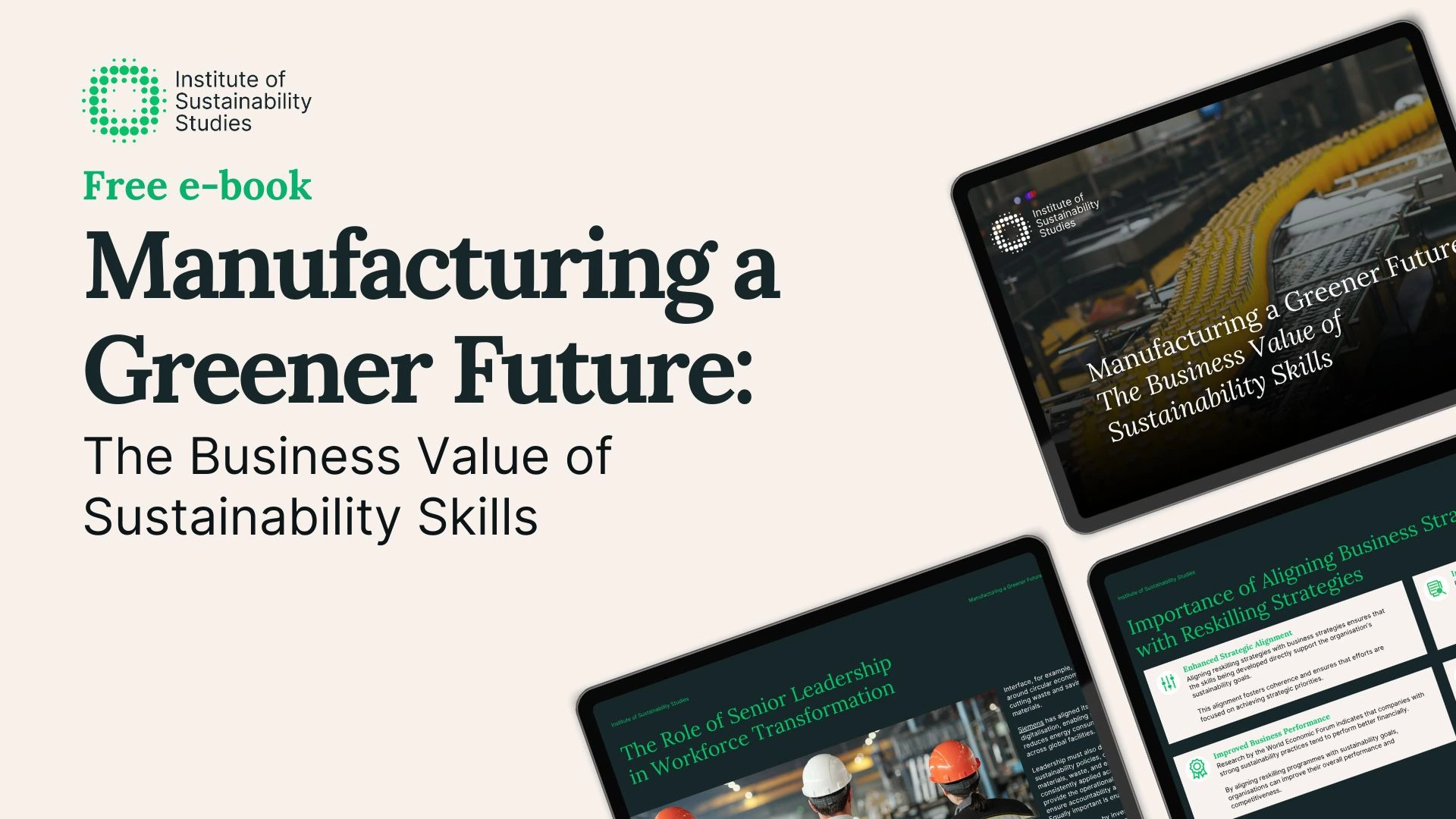As the world faces rapid technological advancements, economic uncertainty, and environmental challenges, businesses are under increasing pressure to accelerate business sustainability. At Davos 2025, global leaders gathered to discuss how industries can adapt, innovate, and contribute to solving the world’s most pressing challenges – from climate change and biodiversity loss to plastic pollution and carbon markets.
For businesses, these conversations set the tone for the next decade of corporate sustainability. So, how can businesses translate the insights from Davos 2025 into practical, actionable strategies? Continue reading as we explore the key takeaways from the discussions and the sustainability-driven business practices that will define success in the years ahead.
What is Davos 2025?
The World Economic Forum (WEF) Annual Meeting 2025, commonly referred to as “Davos 2025,” took place from the 20th of January to the 24th in Davos-Klosters, Switzerland. This year’s theme was “Collaboration for the Intelligent Age,” focusing on how transformative technology can address global challenges. The event convened over 50 heads of state and government, along with leaders from business, academia, and civil society, to discuss pressing issues such as geopolitical stability, economic resilience, climate change, and artificial intelligence governance.
Key commitments or declarations made at Davos 2025
Several significant discussions and commitments were made concerning business sustainability at the WEF Davos 2025.
Global Plastic Action Partnership expansion
The Forum announced that 25 governments have set targets (most for 2025 or 2030) to tackle local plastic pollution problems.
Integration of biodiversity into carbon markets
Leaders, including Singapore’s President Tharman Shanmugaratnam, emphasised the need to incorporate biodiversity outcomes into existing carbon credit markets. This approach aims to address the interconnected challenges of global warming, biodiversity loss, and water scarcity.
Commitment to the Paris Agreement
European leaders reaffirmed their dedication to the Paris Agreement, highlighting its importance despite geopolitical challenges. They urged the necessity of unity and clear climate goals within the European Union.
Race to Belém Initiative
A significant investment initiative, the “Race to Belém,” was launched to protect the Amazon rainforest. Backed by a carbon markets investor and two non-profit organisations, the project aims to raise $1.5 billion to collaborate with Brazilian states, farmers, and local communities, focusing on preserving the world’s largest tropical rainforest.
These developments reflect a global commitment to integrating sustainability into business practices, addressing environmental challenges, and fostering international cooperation for a sustainable future.
Strategies businesses can adopt based on Davos WEF 2025 discussions
Based on the key commitments and declarations made at Davos 2025, businesses can adopt several strategies to align with global sustainability priorities and contribute meaningfully to environmental and social responsibility efforts.
Strengthening circular economy practices
With 25 governments committing to local plastic reduction targets, businesses can:
- Reduce single-use plastics in operations, packaging, and supply chains.
- Invest in recycled and biodegradable materials to meet emerging regulatory standards.
- Join voluntary commitments or partnerships like the Global Plastic Action Partnership to contribute to large-scale solutions.
- Implement waste tracking and reduction goals, ensuring transparency in material use and waste disposal.
Incorporating biodiversity and nature-based solutions
Given the push to integrate biodiversity into carbon markets, businesses can:
- Assess supply chain impacts on biodiversity and take measures to reduce deforestation, habitat destruction, and ecosystem degradation.
- Develop nature-positive initiatives such as reforestation, regenerative agriculture, and wetlands restoration.
- Incorporate biodiversity reporting into ESG strategies, aligning with frameworks like the Taskforce on Nature-related Financial Disclosures (TNFD).
- Engage in biodiversity-linked carbon credits to ensure that offset projects also deliver ecological benefits.
Accelerating carbon reduction and climate adaptation
With European leaders reaffirming the Paris Agreement, businesses should:
- Set science-based emission reduction targets (SBTi) in line with Net-Zero by 2050.
- Electrify operations and transition to renewable energy sources such as solar, wind, and hydro.
- Improve supply chain sustainability, working with vendors to cut Scope 3 emissions.
- Invest in low-carbon innovation, such as green hydrogen, circular manufacturing, and carbon capture technologies.
Engaging in carbon markets and offsetting strategies
Businesses looking to go beyond operational reductions can:
- Support high-integrity carbon credit projects, especially those that integrate biodiversity conservation.
- Diversify offset investments into reforestation, blue carbon (ocean-based sequestration), and agroforestry projects.
- Ensure credibility by aligning with global frameworks such as the Integrity Council for Voluntary Carbon Markets (ICVCM).
Supporting climate resilience and sustainable investment in emerging markets
With the launch of the “Race to Belém” initiative, businesses can:
- Invest in sustainable supply chains in tropical and high-biodiversity regions (e.g., Amazon, Congo, Southeast Asia).
- Develop regenerative agriculture models that benefit smallholder farmers and Indigenous communities.
- Strengthen corporate partnerships with conservation NGOs to support community-led sustainability projects.
- Advocate for responsible corporate policies, ensuring that nature-based solutions support fair wages, land rights, and sustainable livelihoods.
Enhancing ESG transparency and regulatory compliance
Given the growing regulatory shifts in sustainability reporting, businesses should:
- Prepare for evolving sustainability disclosure frameworks such as the CSRD, SEC Climate Rules, and TNFD.
- Improve ESG data tracking systems, leveraging AI and blockchain for transparent reporting.
- Engage in stakeholder collaboration, ensuring that sustainability commitments align with investor and regulatory expectations.
- Adopt lifecycle assessments (LCA) to measure the impact of business operations across carbon, water, and biodiversity.
Conclusion
Davos 2025 has made one thing abundantly clear: businesses are expected to take the lead in driving systemic sustainability change. With new regulatory frameworks, evolving carbon markets, and increasing global pressure for transparency, companies must go beyond compliance. In other words, they need to lead with innovation, resilience, and accountability.
Those who act now will be the ones who thrive in a future shaped by climate ambition and resource-conscious economies. The coming years will determine whether companies react to change or lead it. The time for incremental progress is over. The future belongs to businesses that are bold, forward-thinking, and willing to invest in sustainability as a core driver of success.










